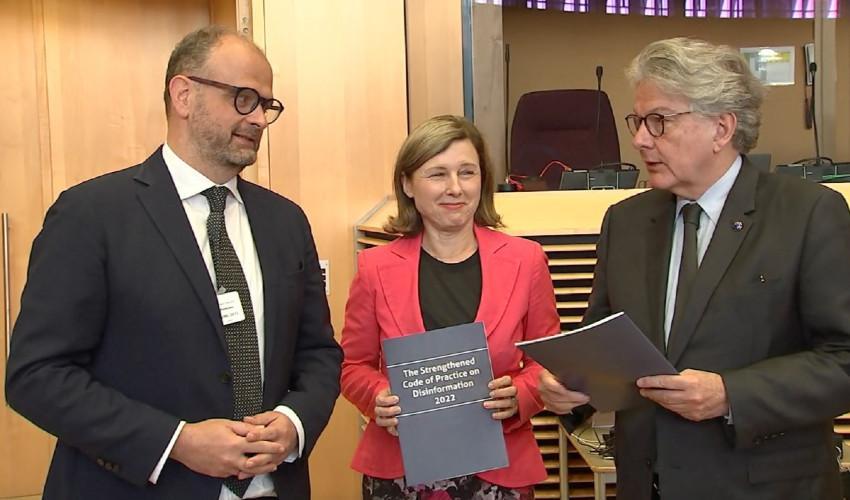
A New Code of Discipline Against Online Disinformation
ORESTE POLLICINO COORDINATED THE DRAFTING OF A DOCUMENT THAT UNITES THE COMMITMENTS OF VARIOUS ONLINE COMMUNICATION ACTORS AND OFFICIALLY HANDED IT OVER TO THE EUROPEAN COMMISSIONOreste Pollicino, professor of media law at the Department of Legal Studies, has delivered the new European code of conduct against disinformation to VÄ›ra Jourová, vice-president of the European Commission and Commissioner for Values and Transparency, and Single Market Commissioner Thierry Breton. The code, whose drafting Pollicino oversaw, was signed by 34 parties and presented on June 16.
The issue of disinformation on the Web is extremely sensitive. Protecting freedom of expression and at the same time cracking down on those who exploit it to deceive and manipulate public opinion is a task of the utmost importance but also fraught with difficulties. The first serious attempt to equip the European Union with a strategy against disinformation dates back to 2018, when the first European code of conduct was launched. This code, which was also the first of its kind in the world, was based on the principle of self-regulation, which unfortunately proved inadequate to the task. This weakness, combined with the lack of precise criteria for verifiability and measurability of commitments, soon exposed the need for a more structured tool.
The Commission's new guidelines, issued in May 2021, thus laid the groundwork for a more innovative and, above all, more effective code. Oreste Pollicino, who had already worked on the previous European Commission strategy in 2018, became the coordinator six months ago of this new project which comes to its conclusion today. The new code, which stipulates setting up an independent agency to assess and monitor the transparency and appropriateness of actions taken, contains much less vague indicators as well as the possibility of punishing offenders. The signatories include figures from civil society, big platforms, fact-checkers, and advertising companies.
“My role has been that of honest broker, of facilitator and coordinator of the very complex process of writing a code that finally responds to a logic of co-regulation (and no longer just self-regulation),” says Oreste Pollicino. “The change of paradigm is essential to counter a phenomenon whose very serious distorting effects, well known beforehand, have been further exposed by the pandemic crisis first and the war crisis later."
by Andrea Costa
